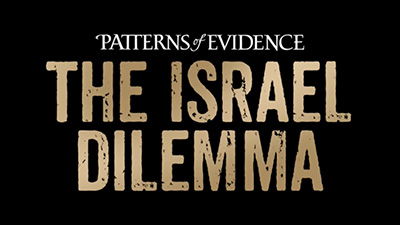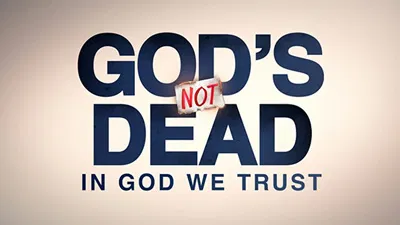
The Da Vinci Code . . . The Movie, the Myth and What to Do about It
The Da Vinci Code will impact thousands, if not millions, of viewers. The church cannot afford to retreat in the face of Satan’s onslaught for the minds and hearts of people, especially our youth.
I, along with millions of others around North America and the world, went to see Ron Howard’s movie The Da Vinci Code last night.
The purpose of this article is not to point out the major errors in the book or the movie (see below for a list of excellent resources), but to discuss the film, its potential impact and to offer believers a biblical response to the book and movie.
First, some background:
- I don’t see a lot of movies in the theater—I have a pretty busy schedule.
- I would, however, have gone to this one, even if it was not an assignment for this article, and I’ll outline my reasons below.
- I am not a movie critic—but I like to think critically about things—especially when it pertains to the faith.
Bruce Kirkland (who is a movie critic) from the Toronto Sun said:
The Da Vinci Code tumbles into the depths of mediocrity, where best-selling books go to die.
One of the problems is that everything is so … obvious. It is no big trick to figure out who in the cast is trustworthy, or who the villains are. So there is no emotional jolt when each fictional truth is revealed.
I am emphasizing “fictional truth” because this is a movie based on a book that claims authority in the presentation of many historical facts, but is often nonsense. Provocative, occasionally thought-provoking nonsense, but not fact.
It is not a sin to see the movie. It is a sin to believe that fictional movies present historical truths.1
Mr. Kirkland offers a fair summary of what most critics are saying.
Some observations
The movie stays very true to the book until almost the end. On that point I was pleasantly surprised. That said, the movie is slow, rambling and bumbling its way through the story. The characters seem wooden, and the flashbacks, while serving to fill in some of the blanks, appear cheap (though I’m sure they were not).
The only real character worth watching is Leigh Teabing, played by Ian McKellen. For the most part, he adds the only character and suspense of the entire film. Interestingly enough, McKellen is also one of the most outspoken of the cast in denying the authority of Scripture. Responding to the question, “should the film include a disclaimer at the beginning that indicates that it is a work of fiction?” he states “I’ve often thought that the Bible should have a disclaimer in the front saying this is fiction.”2
Indeed, the film stays very true to the book, in more ways than just the plot. It seems that every detail from the book that undermines the biblical account of Jesus, His divinity and His relationship with Mary Magdalene is dramatically revealed by Teabing and Langdon throughout the movie, culminating with Langdon’s twice-repeated phrase at the conclusion, “It only matters what you believe.” The truth is expendable … and the secular humanists say, “Amen!”
In writing the book, Dan Brown classified it as fiction. However in the book, and now the movie, fiction is portrayed as fact. While every good fiction writer strives to make their work believable, Mr. Brown actually believes that the “research” behind it, and the “facts” revealed in it, are real.3
Interestingly enough, Mr. Brown was raised in the church, drifted from religion in college and has spent his life “balancing his science-based background with his church-going upbringing. He sees the value in both the big bang theory and the idea that mankind came from Adam and Eve.” He states, “We no longer turn to God for answers as to why the skies drop hail or why plagues spread. Science has answered those questions. We turn to God for the answers to a handful of questions that science has never been able to answer. Why are we here? Where do we go when we die? What does it all mean?”4
Readers of this website will note the unextraordinary path that Mr. Brown has traveled. Like so many not grounded in the truths of the Bible, especially in Genesis, he wandered from the faith in college and has now compromised to the point of denial.
With human nature being what it is, many will walk away from this film getting their theology from a movie instead of the Word of God. Such has been the case time and time again for nonbelievers and, sadly, believers as well. (I lost track of the conversations I had trying to separate fact and fiction for people when Frank Peretti wrote the novels This Present Darkness and Piercing the Darkness.)
How should we respond?
There are a number of responses to this film, and ultimately the book, that Christians are taking.
One response views the church reeling under the scrutiny of fiction turned fact by those who choose to ignore common sense and study the issue as if it were reality. The myriad of books, websites and TV specials produced to “combat” this phenomenon is astounding (a quick Google search revealed at least 250,000 sites and counting).
Another response is to simply ignore the book/film, its impact and hence the world around us. This just isn’t an option, considering 60 million copies have been sold to date and, likely, millions will see the movie. By actually retreating, saying it doesn’t matter or that “we need to be open to the possibility,” we do a great disservice to our Lord, the authority of Scripture and the truth.
George Barna points out that of the 45 million people who have read this book, the overwhelming majority (95%) state that it has not caused them to change “any of the beliefs or religious perspectives because of the book’s content.” AgapePress reports, “So, while the book has generated controversy and discussion, says Mr. Barna, ‘it has not revolutionized the way that Americans think about Jesus, the Church, or the Bible.’”5
However, Mr. Barna points out that the difference between books and film could cause the movie to have broader impact—especially on our youth. On this point, Mr. Barna is absolutely correct. When it comes to blockbuster movies, today’s youth watch them over and over, often memorizing the lines and allowing the philosophies to saturate their thinking. The risk, then, is not so much in the book, but in the movie becoming a mega-hit and impacting the minds of countless students who are already bombarded with the message that they cannot trust the Bible.
A third response is to see the film in its context: fallen man, influenced by false presuppositions regarding truth, the Bible and God, producing a work in the most influential medium to impact our youth, with the purpose of entertaining, making money, and, yes, challenging what billions of people have believed to be true for two thousand years. Really, though, is this any different from other countless attacks on God and His Word down through the centuries? I don’t think so … the enemy is just getting better at it—and Christians are often ill-equipped to deal with it.
Allow me to suggest the following:
- Consider seeing the movie, but check your motives first. I think it’s important that if we are to be salt and light to this generation, especially our youth, we need to see the movie and read the book so we can speak intelligently about it.
Checking your motives means that you’re not going to be entertained. You’re going so that you can engage the culture and refute the error that will pervade people’s minds.
If you know some people who might be going to the movie and are not saved or are wavering in their faith, go with them! Take them out for coffee later and discuss the film, offering truth to dispel fiction. - Read a couple of very good books on this subject before you go.
- The Da Vinci Code: Fact or Fiction by Hank Hanegraaff and Paul L. Maier (Tyndale, 2004)
- Cracking Da Vinci’s Code by James Garlow and Peter Jones (Victor Books, 2004)
- Spend some time on these websites:
- Dr. D. James Kennedy and Coral Ridge Ministries (consider ordering the video—it is very well done): http://www.davincidelusion.tv/
- Dr. Charles Stanley’s response: http://ww2.intouch.org/
- Interview with Dr. Darrell Bock, Dallas Theological Seminary: https://www.baptistpress.com/resource-library/news/qa-author-says-da-vinci-doesnt-stand-up-to-history/
So is this the “movie of the year”? While I don’t think the movie will live up to its expectations, The Da Vinci Code will impact thousands, if not millions, of viewers. The church cannot afford to retreat in the face of Satan’s onslaught for the minds and hearts of people, especially our youth. Be prepared, and make a difference!
Footnotes
- Read another review of the Da Vinci Code
- NBC Today Show, 05/17/2006 (8:18 am EDT).
- Good Morning America, 11/03/03. Dan Brown states “I began researching The Da Vinci Code as a skeptic.”
- Controversial Code Not as Influential As Some Might Think, Says Barna, AgapePress, May 17, 2006.
- Ibid.
Recommended Resources

Answers in Genesis is an apologetics ministry, dedicated to helping Christians defend their faith and proclaim the good news of Jesus Christ.
- Customer Service 800.778.3390
- © 2025 Answers in Genesis




